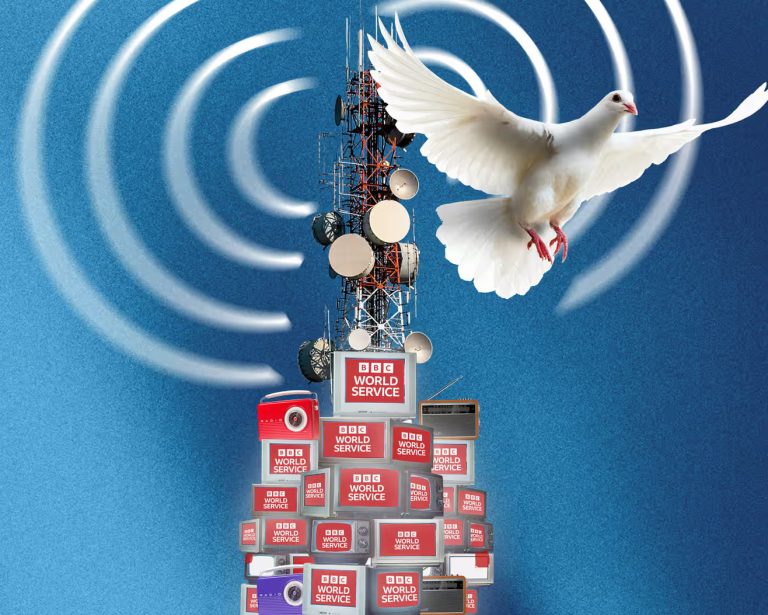BBC World Service Faces Funding Uncertainty Amid Strategic Global Challenges
Hours before Rachel Reeves delivered last year’s budget, government officials were still locked in intense discussions with BBC executives over a relatively modest £5.5 million allocation—just a small fraction of the £400 million BBC World Service budget. Despite the seemingly minor amount, BBC leaders warned that failure to secure the funding would result in the closure of several international language services, particularly in regions where Russian influence is already prevalent. Such a move, they argued, would hand a strategic win to Moscow. Jonathan Munro, the BBC’s global director, underscored the importance of the World Service, calling it the UK’s most powerful soft power tool in international communication.
Munro highlighted that the BBC World Service currently delivers independent news in 42 languages to more than 400 million people weekly—at what he described as the best value for money among global broadcasters. While proud of its current reach, the broadcaster remains ambitious about expanding further into regions that lack access to reliable, independent information.
Though the World Service is only one part of the UK’s broader soft power toolkit, it stands out as the most globally influential. According to the BBC’s own data, its weekly reach exceeds 450 million people. When international respondents were asked about prominent British institutions and exports, the BBC topped the list: nearly 80% of those surveyed had heard of it, and almost 50% said it improved their perception of the UK. In contrast, only 55% had heard of the British monarchy, with just 25% saying it positively affected their views.
In the same BBC-commissioned research, the organisation also emerged as the most trusted global news provider, outperforming international competitors like CNN, Al Jazeera, and Sky News. Jonathan McClory, managing partner at Sanctuary Counsel and a soft power expert, commented that the World Service is “a gratuitous accident of history” and irreplaceable in today’s media landscape. He emphasized its role in promoting British values such as press freedom, transparency, and human rights around the world.
Government ministers are not blind to the World Service’s importance. Jenny Chapman, Minister for International Development, praised its role in diplomacy and communication, calling it “an absolute gold standard resource.” However, some fear that its global influence is being undermined by persistent budget constraints.
Back in 2014, the UK government ended direct funding for the BBC World Service, shifting the financial burden entirely to the licence fee. Though partial government funding was reintroduced two years later—earmarked for specific language services—it remains significantly reduced. Today, the bulk of the £400 million World Service budget comes from the licence fee, a situation BBC Director-General Tim Davie warns is unsustainable, especially amid broader domestic cuts.
The government has reportedly asked the BBC to prepare for multiple funding scenarios, both of which would involve scaling back parts of the World Service. While full closures in specific countries are unlikely, internal sources say lesser-known language services—particularly those spoken by smaller populations—are most at risk. Many of these services operate in regions close to Russia, making them strategic targets in the ongoing battle for influence.
Cutting even small services carries outsized consequences. When the BBC shut down its Arabic radio broadcast in Lebanon, the frequency was quickly occupied by Russian-backed media, who began airing their content unopposed. On a day when thousands of Hezbollah-linked pagers simultaneously activated, BBC monitors picked up what Davie later described as “unchallenged Russian propaganda” being broadcast in place of the BBC’s signal.
Meanwhile, global trust in Russian and Chinese state media appears to be rising. The BBC’s latest research shows its own trust levels holding steady at 78%, but Russia Today and China Global Television Network have seen increases—from 59% to 71% and 62% to 70%, respectively. These figures underscore a growing competition in the international media space, especially in regions where Western voices are diminishing.
In response to these shifts, Caroline Dinenage, chair of the parliamentary culture, media, and sport select committee, issued a formal warning to government ministers. In a letter, she cautioned that additional funding cuts could trigger further service reductions, leaving a vacuum for authoritarian media to exploit. She urged the government to reject a proposed 2% funding cut and prioritize the World Service’s strategic value.
While such arguments have persuaded government officials in the past, Reeves faces difficult fiscal choices. Commitments to increase spending on defence, healthcare, and local transport have already tightened the budget, making further allocations harder to justify.
Dinenage remains firm: “Ministers have told us that the World Service bolsters UK security. Cutting its funding now would undoubtedly make us all less safe.”
A Foreign Office spokesperson echoed the service’s value while defending current support levels: “Despite a tough fiscal situation, we continue to back the World Service, providing a large uplift of £32.6 million this year alone, taking our total funding to £137 million. The work they do as an independent and trusted broadcaster is highly valued by this government, as our continued financial support shows.”

